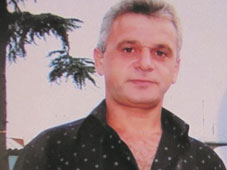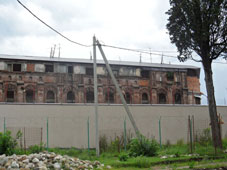
Georgian Man Sentenced to 20 Years Released by Abkhaz Authorities
By Gvantsa Gabekhadze
Wednesday, December 27
(GALI DISTRICT, Abkhazia) -- A Georgian citizen previously sentenced by the Russian-backed rebel authorities in Abkhazia to 20 years in prison region on terrorism charges has been released after interlocutors from Tbilisi and the occupied Black Sea region wrapped up years of negotiations.
Giorgi Lukava, a veteran of the 1992-93 Georgian-Abkhaz War, spent seven years in prison after being captured by secessionist militias in the Gali District, the last remaining area in Abkhazia with a Georgian ethnic majority.
Lukava was later convicted by a rebel court of plotting terrorist activities against the Moscow-backed government.
With an amnesty agreement in place, Lukava was handed over to Georgian authorities on Tuesday at the Enguri Bridge, the main crossing point between the occupied Abkhazia and government held territory in Georgia.
Tbilisi’s Minister of Reconciliation and Civic Equality, Ketevan Tsikhelashvili, applauded the development saying Lukava’s release "is a positive example of humanitarian cooperation between the Georgian and Abkhaz sides” while adding that the move “will be reflected in the peace-building process and the restoration of trust between Georgians and Abkhazians.”
Prior to the announcement of his release, the ruling Georgian Dream government had come under considerable fire, most notably from Lukava’s wife, for appearing to do little to secure his release.
The situation in the Gali District remains one of the most tense in the South Caucasus. After being routed in September 1993 by a combined force of Russian regulars and volunteers fighting for the Abkhaz government, more than a quarter of a million Georgians from Abkhazia were ethnically cleansed from the region.
As the only district under rebel control that retains its Georgian ethnic majority, Gali’s population has come under increasingly intense pressure from forces loyal to the Moscow-backed government in the regional capital Sukhumi.


